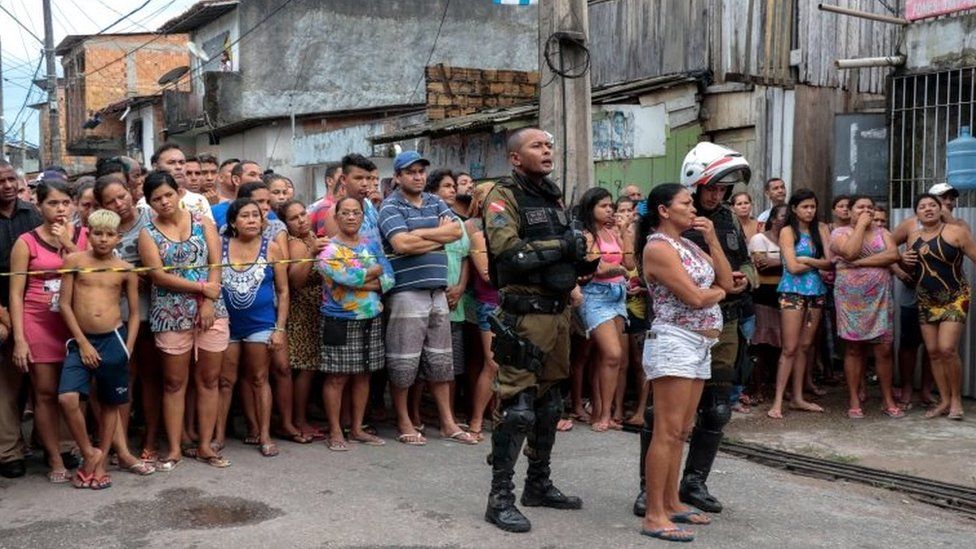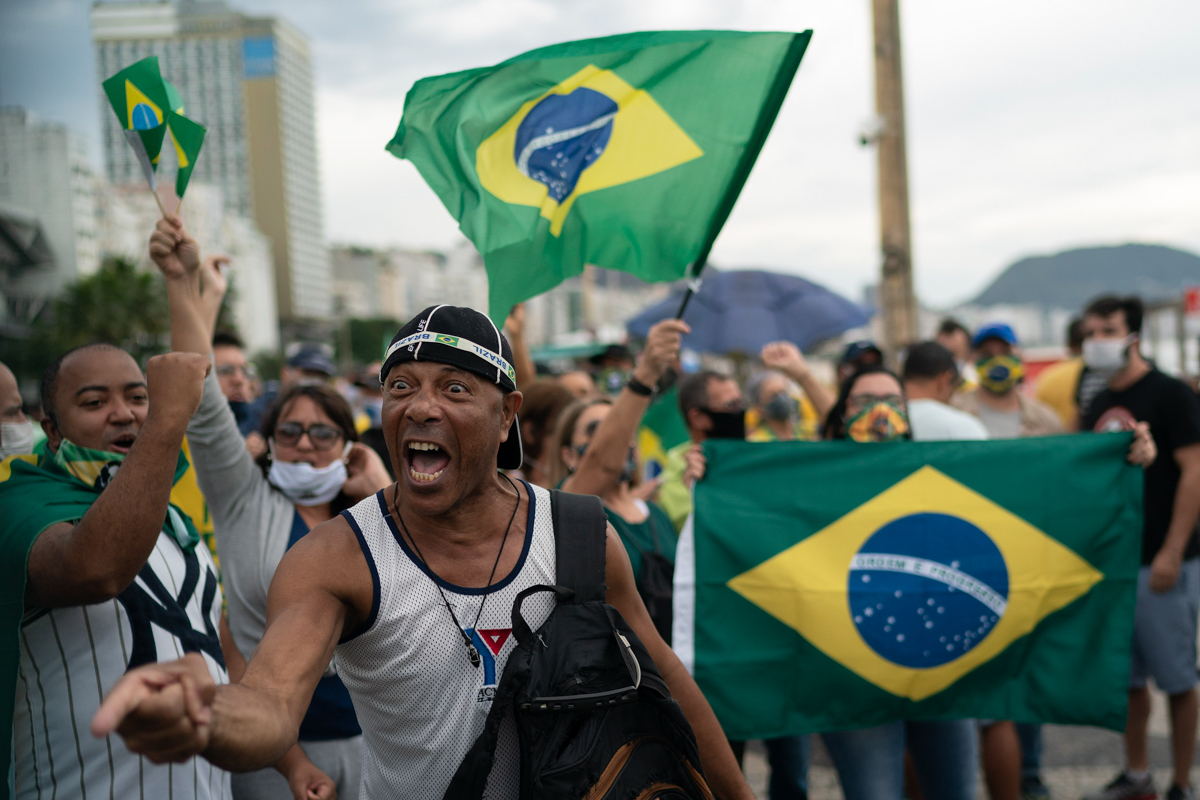Political Landscape and Current Events

Brazil’s political landscape is in a state of flux, marked by a complex interplay of ideologies, shifting alliances, and ongoing economic challenges. Recent events have significantly impacted the country’s trajectory, influencing both domestic and international affairs.
Current Political Developments
Brazil’s political scene is dominated by a spectrum of ideologies, ranging from left-leaning to right-leaning parties. The Workers’ Party (PT), historically associated with left-wing policies, has been a significant force in Brazilian politics for decades, while the Brazilian Democratic Movement (MDB) represents a more centrist approach. The Liberal Party (PL), currently holding the presidency, advocates for conservative policies and economic liberalization.
The 2022 presidential election saw a close contest between Luiz Inácio Lula da Silva, representing the PT, and Jair Bolsonaro, representing the PL. Lula’s victory marked a return to power for the PT after a period of conservative rule under Bolsonaro.
Lula’s administration faces a number of challenges, including a sluggish economy, high inflation, and a polarized electorate. He has pledged to address these issues through a combination of social programs, economic reforms, and environmental initiatives.
Impact of Recent Events
The recent political developments have had a significant impact on Brazil’s economy, social dynamics, and international relations.
Economic Impact
The economic outlook for Brazil remains uncertain, with concerns about inflation, rising interest rates, and the potential for a global recession. The government is facing pressure to address these challenges while also implementing its social programs and economic reforms.
Social Impact
Brazil’s social fabric has been deeply affected by the recent political events. The country is deeply divided along political lines, with widespread distrust in institutions and a growing sense of social unrest.
International Relations
Brazil’s foreign policy under Lula has shifted towards a more multilateral approach, emphasizing cooperation and engagement with international organizations. The government has also sought to strengthen ties with Latin American countries and other developing nations.
Major Challenges and Opportunities
The current Brazilian government faces a number of challenges, including:
* Economic instability: High inflation, rising interest rates, and a weak currency pose significant challenges to the government’s economic agenda.
* Social inequality: Brazil continues to grapple with high levels of poverty and income inequality, despite recent progress in reducing poverty rates.
* Environmental degradation: Deforestation, pollution, and climate change are pressing environmental challenges that require immediate attention.
* Political polarization: The country remains deeply divided along political lines, making it difficult to build consensus and implement meaningful reforms.
Despite these challenges, Brazil also has a number of opportunities:
* Strong economic fundamentals: Brazil has a large and diverse economy with significant potential for growth.
* Abundant natural resources: The country is rich in natural resources, including minerals, oil, and agricultural land.
* Growing middle class: Brazil’s middle class is expanding, creating new opportunities for businesses and consumers.
* Emerging technological sector: Brazil is developing a strong technological sector, with potential for innovation and growth.
Economic Trends and Business News

Brazil’s economy has been showing signs of recovery in recent years, but it still faces challenges. The country is navigating a complex economic landscape, marked by both opportunities and risks. This section delves into the key economic trends and business news impacting Brazil.
Economic Performance
Brazil’s economic performance is characterized by a mix of positive and negative indicators. The country’s Gross Domestic Product (GDP) has been steadily growing, indicating an expanding economy. However, inflation remains a concern, although it has shown signs of easing. The unemployment rate has been declining, reflecting an improvement in the labor market.
Here’s a breakdown of key economic indicators:
- GDP Growth: Brazil’s GDP has been steadily growing in recent years, with a projected growth rate of around 2.5% in 2023. This growth is driven by factors such as increased consumer spending, government investments, and a rebound in the agricultural sector.
- Inflation: Inflation has been a persistent issue in Brazil, but it has shown signs of easing in recent months. The central bank’s aggressive monetary policy has helped to contain inflation, which is currently hovering around 4%.
- Unemployment Rate: The unemployment rate in Brazil has been steadily declining, indicating an improvement in the labor market. The rate is currently around 8%, down from a peak of over 14% in 2020.
Major Industries
Brazil boasts a diverse industrial landscape, with key sectors contributing significantly to the country’s economy. These sectors include:
- Agriculture: Brazil is a global powerhouse in agriculture, renowned for its vast production of commodities such as soybeans, coffee, sugarcane, and beef. The sector is a major contributor to the country’s GDP and a significant source of foreign exchange earnings.
- Mining: Brazil possesses abundant mineral resources, including iron ore, gold, and bauxite. The mining sector plays a vital role in the country’s economy, generating employment and contributing to exports.
- Manufacturing: The manufacturing sector in Brazil is diverse, encompassing industries such as automotive, aerospace, and electronics. The sector is undergoing a transformation, with a focus on increasing productivity and competitiveness.
- Services: The services sector is the largest contributor to Brazil’s GDP, encompassing industries such as retail, tourism, and finance. The sector is expected to continue to grow as the country’s economy expands.
Investment Opportunities and Risks
Brazil presents both opportunities and risks for investors. The country’s vast natural resources, growing middle class, and favorable demographics offer attractive investment opportunities. However, investors need to be aware of potential risks, such as political instability, bureaucratic hurdles, and economic volatility.
- Opportunities: Brazil’s large and growing domestic market, coupled with its abundant natural resources, presents attractive investment opportunities across various sectors. The government has implemented reforms to improve the business environment, making it easier for businesses to operate and invest in the country. The increasing demand for infrastructure development, particularly in areas such as transportation, energy, and telecommunications, presents significant opportunities for investors.
- Risks: Despite its economic potential, Brazil faces a number of challenges that could impact investor confidence. Political instability, corruption, and bureaucratic red tape can create uncertainty for businesses. Economic volatility, driven by factors such as inflation and currency fluctuations, can also pose risks to investments. Investors need to carefully assess these risks before making investment decisions.
Global Economic Trends
Brazil’s economy is closely linked to global economic trends. The country’s exports are heavily dependent on international demand, making it susceptible to fluctuations in the global economy. For example, a slowdown in the Chinese economy could negatively impact Brazil’s exports of commodities. On the other hand, a surge in global demand for commodities could benefit Brazil’s economy.
“Brazil’s economic growth is closely tied to global economic trends, particularly in terms of commodity prices and demand from key trading partners.”
Social and Cultural Issues: Brazil News

Brazil is a country of immense social and cultural diversity, grappling with a range of challenges while simultaneously celebrating its rich heritage. From the vibrant rhythms of samba to the captivating landscapes of the Amazon, Brazil is a nation of contrasts, where progress and tradition intertwine.
Social Challenges
Brazil faces significant social challenges, including poverty, inequality, and crime. Despite economic growth in recent decades, a significant portion of the population remains below the poverty line. The country’s history of colonialism and slavery has left a lasting impact on social structures, contributing to persistent inequalities in access to education, healthcare, and employment. Crime, particularly in urban areas, is a major concern, with high rates of violence and organized criminal activity.
Cultural Diversity
Brazil is renowned for its rich cultural heritage, a tapestry woven from the contributions of indigenous peoples, European colonizers, and African slaves. The country’s music scene is vibrant and diverse, encompassing styles such as samba, bossa nova, and forro. Brazilian art is equally rich, ranging from the indigenous art of the Amazon to the modern and contemporary works of renowned artists. Brazilian literature is a treasure trove of diverse voices, exploring themes of social justice, identity, and the human condition. Brazilian cuisine is a delightful fusion of flavors and traditions, with dishes like feijoada, moqueca, and acarajé showcasing the country’s culinary ingenuity.
Impact of Social Media and Technology
Social media and technology have had a profound impact on Brazilian society, transforming communication, information access, and cultural expression. Social media platforms have emerged as powerful tools for social activism, enabling citizens to organize protests, raise awareness about social issues, and hold authorities accountable. Technology has also facilitated the growth of e-commerce, digital entrepreneurship, and online education, creating new opportunities for economic and social advancement.
Emerging Trends and Movements, Brazil news
Brazilian culture is constantly evolving, with new trends and movements emerging in response to changing social and technological landscapes. The rise of environmental activism has led to increased awareness and concern about the preservation of the Amazon rainforest and other natural resources. The LGBTQ+ movement has gained momentum, advocating for equal rights and challenging societal norms. The growing popularity of Afro-Brazilian culture and music has fostered a renewed appreciation for the country’s diverse heritage.
Brazil news – While the world watches Brazil’s political landscape unfold, it’s also important to stay informed about the crucial upcoming US elections. Don’t miss the abc presidential debate time , a key moment to understand the candidates’ visions and their impact on global affairs, including Brazil’s international relations.
Brazil’s news cycle is constantly evolving, with recent events highlighting the complex interplay of politics, social issues, and economic factors. It’s a reminder that even in the midst of global challenges, individual voices can have a profound impact, much like the legacy of Robert F.
Kennedy Jr. , who has consistently challenged conventional thinking and advocated for change. As we watch the unfolding narrative in Brazil, it’s important to remember that the power of individual action can be a catalyst for positive transformation.
